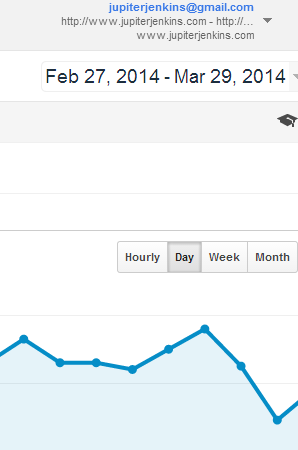According to Google Analytics, you, dear reader, are part of a dwindling few. 9 hits on Friday. Ah, the joys of increasing obscurity. Nevertheless I persist if only for myself. It’s sort of like performing excellent music and wondering if anyone notices. Or doing an improvisation in a room full of sweating sincere athletic young dancers and wondering how they hear what I am doing. How does it compare to what musics they listen to on their own? Are many perceiving the ideas in the music at all?

Yesterday I began to firm up a resolve to perform a movement from the Mendelssohn A major organ sonata as the postlude next week. Originally I had scheduled a lovely elegant setting of Aus Tiefer not by Jan Bender. It is short, not that hard and quite beautiful (in my obscure estimation).

But on Friday (the day of the 9 hits), I pulled out the Mendelssohn for the heck of it. It quotes the chorale as well. I was surprised at how easily this piece of music came back to me. The echoes in my head are not always helpful. I can remember a teacher telling me quite late in my training that I had no pedal technique. When I combine negative ideas like this with the obscurity of laboring in a small Episcopal church or a small college dance class, it’s sometimes difficult to maintain a clear picture of my own abilities.

I live with my most severe critic, of course, myself. But I can easily see that my abilities are not that of a virtuoso. But I think that my relentless practicing helps. So the Mendelssohn seems to fall into the category of performing excellent music to the best of my abilities when called on. So I think I will use it as the postlude next Sunday. It would be cool if I did a little bulletin article that talked about the relationship between the postlude, the choir offertory (the Bach four part chorale setting of Aus Tiefer sung in a Catherine Winkworth English translation adapted, and the psalm for the day (130… the text of the chorale).
Also rattling in my brain is what I hear in the theology and meaning of Mendelssohn’s setting. It begins with a joyous A major section, but quickly moves to a lovely minor fugue with the chorale tune emerging in the pedal as a cantus firmus (“fixed song”). After a few pages the beautiful A major section returns. This reminds me of the intelligent way my church prays through Lent, a time often when Christians beat their breasts and contemplate their miserable navels. Instead there seems to be a healthiness in the gathered community that I serve. A combination of contemplating the stories of this year’s Lent with a clear-sighted persistence of idealism if not naivete. (The stories this year are The desert temptation of Jesus, Nicodemus coming to Jesus in secret by night, The Woman at the well, the healing of the blind man, and the raising of Lazarus from the dead).

Yesterday, while making my weekly library visit to return my mother’s books and pick out a slew of new books for her to read, I glanced at the new shelf and saw John Eliot Gardiner’s recent biography of Bach.

I checked it out, read the preface and some of the first the chapter this morning, then ordered a copy for myself.

I also succumbed and ordered Perfecting Sound Forever: An Aural History of Recorded Music by Greg Milner, one of the books David Byrne refers to that I haven’t read yet and the piano transcription of Keith Jarrett’s Köln Concert.

It can be dangerous to keep books in your Amazon queue.

1. An Engineer’s Eureka Moment With a G.M. Flaw – NYTimes.com
What happens when an investigator compares old and new parts with the same identifying part number and find the new one changed.
2. High Culture and Hard Labor – NYTimes.com
Building a world class cultural center with indentured workers. Nice.
